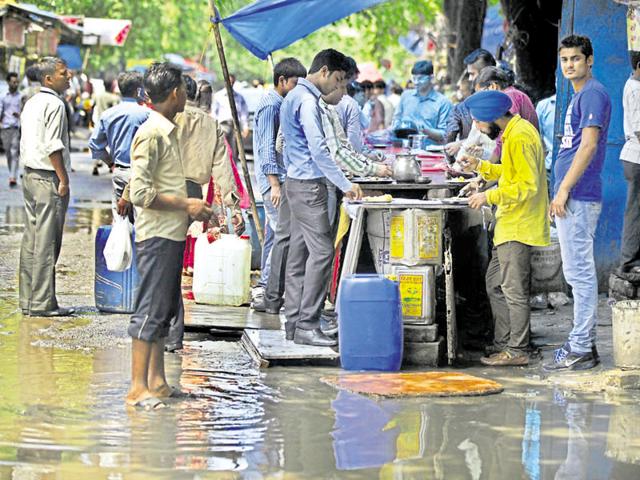Watch out for these monsoon-related illnesses
Warm, humid weather results in a gaggle of bacteria, viruses, fungi and parasites swarming down to infect and sicken. Here’s how to protect yourself and your family from falling ill.
Bacteria, virus, fungi and parasites grow exponentially in warm and humid weather. In the monsoon, even the strongest fall ill. It’s advisable to take precaution. Here are a few tips to keep you and your family healthy.

Viral infection
People are susceptible to seasonal viral infections when there is a sudden change in temperature or if they get wet frequently. The symptoms of the infection are fever, cough and cold.
“Washing hands before every meal or after coughing and sneezing goes a long way in preventing the virus from spreading. Also, if you have a cough, make sure you cover your mouth so that others don’t get infected,” said Dr Rommel Tikoo, senior consultant, department of internal medicine, Max Hospital.
What to do: Take off your wet clothes as soon as possible. Avoid crowded places, where you can be exposed to other infected people who can contaminate surfaces.
When to go to a doctor: If the fever, cough or cold does not subside after peaking for two days.
Gastroenteritis
Virus and bacteria in contaminated food and water cause gastroenteritis. The symptoms are diarrhoea, abdominal pain, nausea and vomiting.
“Rainwater can contaminate street food, and warm, humid weather is favourable for the growth of bacteria that infect people,” said Dr SP Byotra, head of the department of medicine at Sir Ganga Ram Hospital.
What to do: Don’t eat street food. “Make sure you wash utensils and vegetables with clean water. It is best to boil or filter drinking water. Also, if you have diarrhoea, keep yourself hydrated. A solution of salt and sugar will help maintain the salt level in the body,” says Dr Byotra.
When to go to a doctor: If diarrhoea lasts for more than a day or if you have to visit the toilet more than three times in a day for more than one day. Keep yourself hydrated and do not self-medicate.

Read more: Three dengue cases in two days in Delhi, hospitals biggest breeding ground
Jaundice and typhoid
Both the diseases are caused by contaminated food and water. “The number of cases fall in summer and then rise in the monsoon ,” said Dr RK Singal, head of department of internal medicine, BL Kapoor Superspeciality Hospital.
“The symptoms of typhoid are high fever, headache, abdominal pain, and either constipation or diarrhoea. The symptoms of jaundice are fatigue, nausea, vomiting, yellowing of the skin and the white of the eyes.
What to do: Avoid eating food or drinking juice from street vendors. Boil or filter the water before drinking. Keep yourself hydrated if you have loose motions.
When to go to a doctor: “If the colour of your urine is dark yellow or reddish, go to a doctor immediately,” said Dr Singal.
Dengue, malaria, chikungunya
Waterlogging around the city is to blame for the spread of mosquitoes. They breed in the pools of stagnant water and spread diseases like dengue, chikungunya and malaria during monsoon. Malaria is characterised by high-grade fever and shivers.
The symptoms of dengue include high-grade fever, pain behind the eyes, muscle, bone and joint pain and sometimes rashes. The symptoms of chikungunya are similar to dengue and include joint pain for weeks after the fever subsides.
What to do: Wearing long-sleeved clothes or apply mosquito repellent to protect yourself against mosquitoes. Do not take aspirin as a pain killer since it aggravates bleeding associated with dengue.
When to go to a doctor: Malaria is treated with anti-malarial medicines, while treatment for dengue or chikungunya is symptomatic. Rush to the hospital if your fever crosses 104 degrees Fahrenheit or if you have rashes.




